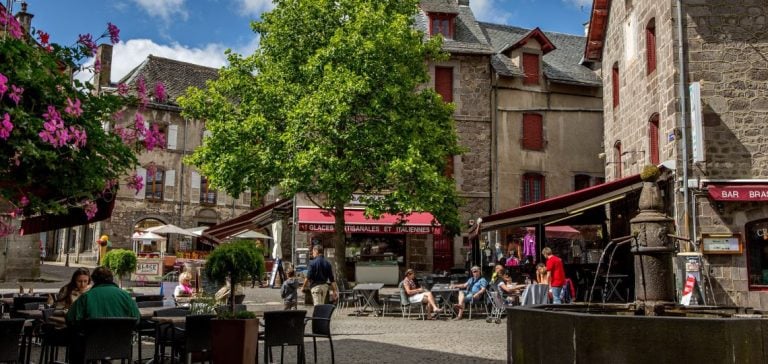The energy transition of rural municipalities is often hindered by technical and financial constraints. In Besse-et-Saint-Anastasie, in the Puy-de-Dôme (63), this issue has been overcome thanks to the connection to the biomass heat network. This project, led by Hellio in partnership with L.E. Énergies, allows the municipality to significantly reduce its heating costs while decreasing its carbon footprint.
The installation of a biomass heating plant and the connection of 70 public and private buildings should result in a reduction of CO₂ emissions by 80 to 90%. Furthermore, the annual heating bill for residents and local businesses is estimated to decrease by 15 to 25%. This project is part of a broader approach to valorizing local energies and creating sustainable jobs.
The Key Role of Heat Networks in Rural Areas
Heat networks are essential infrastructures for optimizing heat distribution in communities. In rural areas, they allow for the exploitation of local renewable energy resources, such as biomass, to provide efficient and environmentally friendly heating energy. This approach not only contributes to reducing greenhouse gas emissions but also to controlling energy costs for residents and businesses.
However, implementing such networks requires significant investments and specialized technical expertise. Rural municipalities, often limited in resources, need reliable partners to successfully carry out these projects. Hellio, with its ten years of experience and its subsidiary Akéa Énergies, provides the necessary financial and technical engineering to succeed in these initiatives.
Financing and Support for Energy Projects
To realize the Besse-et-Saint-Anastasie project, Hellio mobilized €2.5 million in ESC (Energy Savings Certificates) premiums. These financial aids made it possible to reduce the remaining cost of the works, making the connection to the biomass heat network accessible to the municipality. This financial mobilization illustrates the importance of public support mechanisms in carrying out energy transition projects.
Karim Naili, head of the construction sector at Hellio, emphasizes that identifying energy-saving opportunities and accessing aids such as the “Coup de pouce” for connecting to the heat network are crucial for the success of projects. These measures facilitate the combination of energy performance and compliance with regulatory obligations, notably the tertiary decree which imposes a 40% reduction in energy consumption by 2030 for tertiary buildings.
Comprehensive Support for Territories by Hellio and Akéa Énergies
Hellio and its subsidiary Akéa Énergies offer comprehensive support to local authorities in their energy transition. From energy audits to consumption management, including financial structuring of projects and seeking grants, these entities provide essential support to municipalities aiming to improve their energy efficiency.
In Puy-de-Dôme, for example, Hellio led the energy renovation of the Lazare association’s solidarity housing in Clermont-Ferrand. Thanks to the technical expertise of Akéa Énergies and the mobilization of public funding, the project managed to reduce the energy consumption of the housing by a factor of four, while also reducing the cost of the works through financial aids.
Technological Innovations for Optimized Energy Management
Akéa Énergies developed the DeltaConso Expert tool, a monitoring software dedicated to energy and fluid management. This tool annually analyzes more than 300,000 energy invoices nationwide, allowing the identification of potential savings of over €3 million. In the Auvergne-Rhône-Alpes region, DeltaConso Expert monitors 21,000 delivery points, thus facilitating proactive and optimized management of energy consumption.
The integration of advanced technologies like DeltaConso Expert demonstrates Hellio and Akéa Énergies’ commitment to sectoral innovation. These tools not only allow real-time consumption tracking but also anticipate future energy needs, thereby ensuring a sustainable and efficient energy transition for partner communities.






















